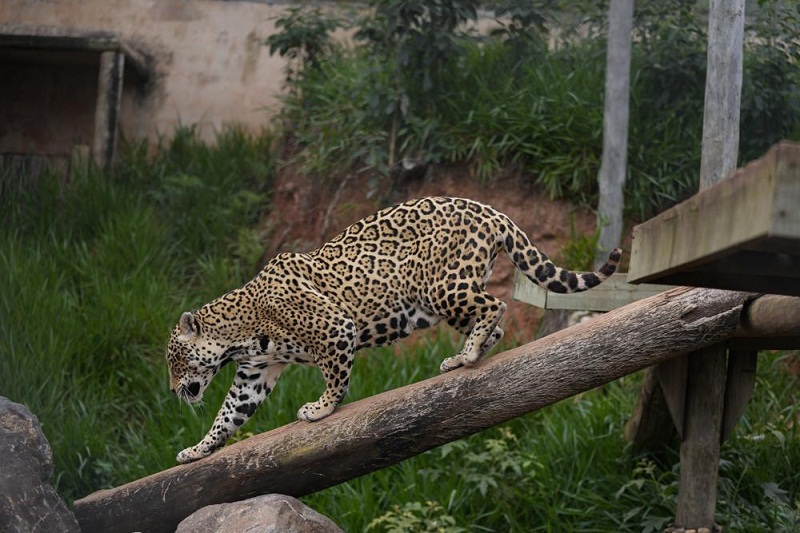

Brazilian and American scientists on Thursday tranquilized a wild-born female jaguar now living in a protected area in Sao Paulo state. They’re hoping the 110-pound feline named Bianca could make history for the second time in two years.
In 2019, Bianca gave birth to the first jaguar cub ever born from artificial insemination. Now, the 8-year-old could once again advance the cause of preserving her species. That is, if all goes according to plan and she becomes pregnant using semen that is frozen.
Scientists say frozen semen would be easy to transport, and so help ensure genetic diversity of jaguars whose populations are increasingly fragmented by habitat destruction, according to Lindsey Vansandt, a theriogenologist — a specialist in veterinary reproductive medicine — at the Cincinnati Zoo & Botanical Garden.
“The population sort of becomes smaller and smaller, and then you get inbreeding which has lots of bad consequences,” Vansandt told The Associated Press moments after performing the procedure on an unconscious Bianca atop a surgery table.
“If we can take sperm from one male and inseminate a female from another location, we can keep their gene flow moving and keep the population more healthy,” Vansandt said.